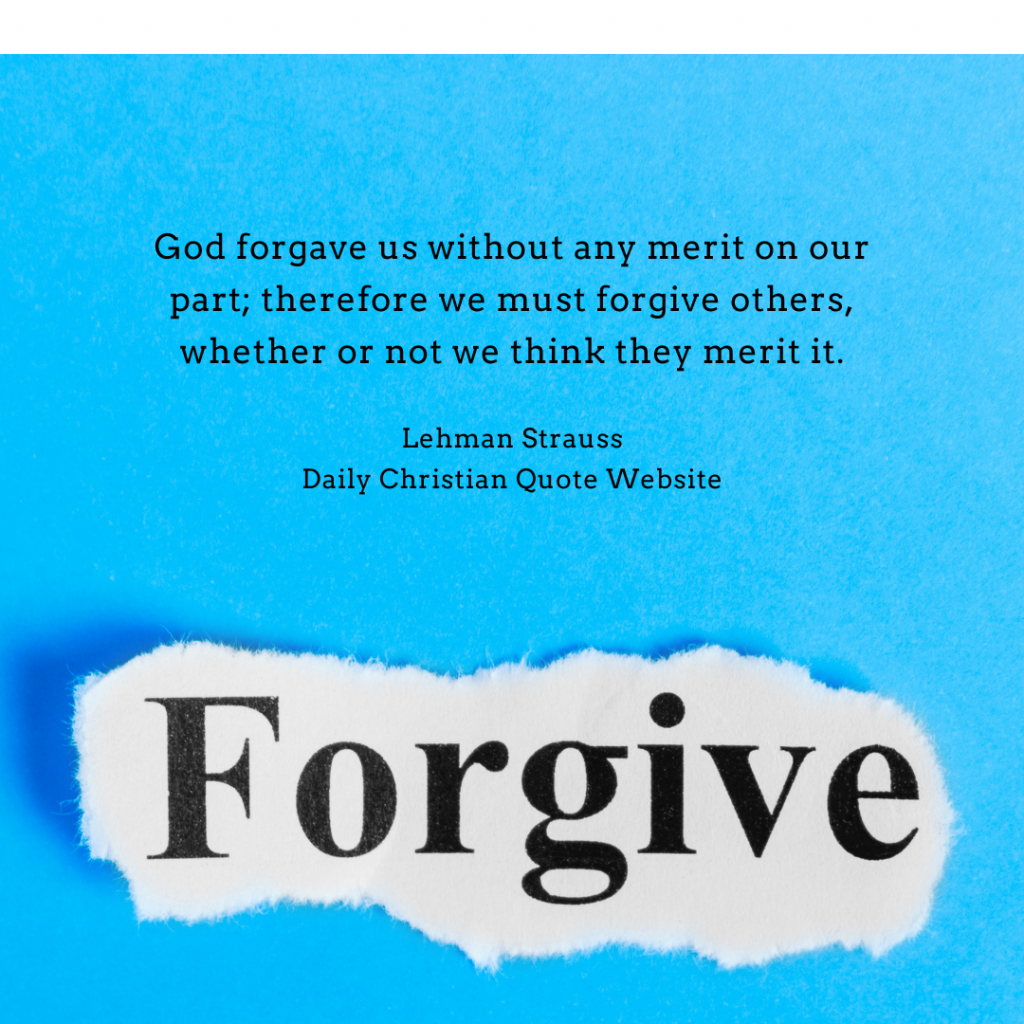The difference between unforgiveness and forgiveness depends on whose blood brings you peace. The blood of your enemy or the blood of your Savior.
Forgiveness
Lehman Strauss
Voddie Baucham Jr.
If we refuse to forgive, we have stepped into dangerous waters. First, refusing to forgive is to put ourselves in the place of God, as though vengeance were our prerogative, not his. Second, unforgiveness says God’s wrath is insufficient. For the unbeliever, we are saying that an eternity in hell is not enough; they need our slap in the face or cold shoulder to “even the scales” of justice. For the believer, we are saying that Christ’s humiliation and death are not enough. In other words, we shake our fists at God and say, “Your standards may have been satisfied, but my standard is higher!” Finally, refusing to forgive is the highest form of arrogance. Here we stand forgiven. And as we bask in the forgiveness of a perfectly holy and righteous God, we turn to our brother and say, “My sins are forgivable, but yours are not.” In other words, we act as though the sins of others are too significant to forgive while simultaneously believing that ours are not significant enough to matter.
Amy Carmichael
If I am content to heal a hurt slightly, saying “Peace, peace,” where is no peace; if I forget the poignant word “Let love be without dissimulation” and blunt the edge of truth, speaking not right things but smooth things, then I know nothing of Calvary love.
Woodrow Kroll
Skip Heitzig
Legalism points the finger. Grace opens wide its arms and seeks to restore. Legalism loves condemnation, Grace loves restoration. “So you messed up, so did I. Come on in. We want to get around you, we want to lift you up, we want to restore you. We may get in your business and get honest with you, but we want to restore you back to fruitfulness. We don’t just want to point out your faults, we want to restore you.”
Francois Fenelon
Never let us be discouraged with ourselves; it is not when we are conscious of our faults that we are the most wicked: on the contrary, we are less so. We see by a brighter light. And let us remember, for our consolation, that we never perceive our sins till He begins to cure them.
Eugene H Peterson
Restore what needs to be restored. Ask for forgiveness where needed so that we can go on and share the gift. Our inability or our unwillingness to do that is, I’m sure, what produces a lot of our “dis-ease.” A symptom, perhaps, yet it’s also evidence of our frantic attempts to grasp for joy, to share joy, and to give joy to others instead of first going back and doing that basic homework of the heart that is central to our lives, where we forgive and are forgiven and where we find God’s love and then learn how to share it. Hard preparation produces easy enjoyment.
Pastor John Gray
Nancy Boyd-Sherman
It’s funny how fragile my faith is after so many years of walking with Jesus. You would think I had matured past this point, but the choice to trust is a daily exercise it seems. And He is faithful. Faithful to wait for me to realize I feel distant, faithful to wait until I realize I do not hear a well as I know is possible. When I ask what has come between us, He is faithful to step in with truth – not accusation. Truth. The truth of what lies I’ve partnered with and how I’ve harboured accusation, hurt, offense, and fear in my heart that crowd out His spirit. He reveals his truth about my lack of forgiveness for myself and others. This truth does not just lay me bare, it offers restoration to intimacy. I ask myself how many times will he forgive the weakness of my faith and restore me? He responds “As many times as is needed.”


